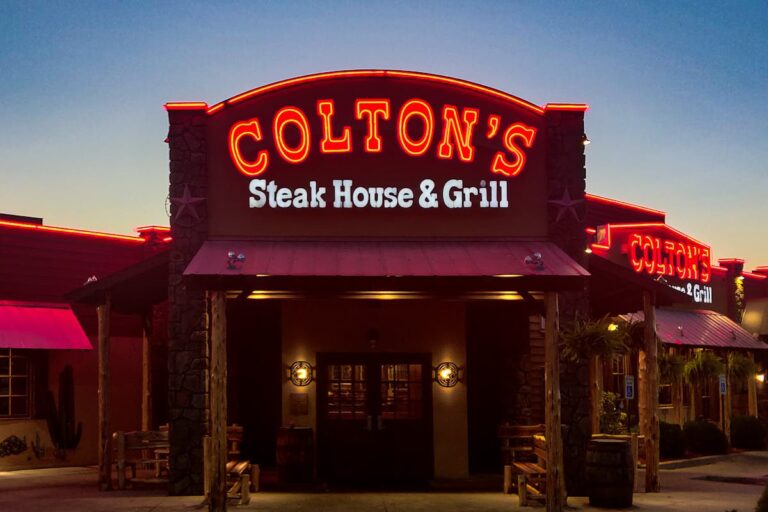Riggan Law Firm Files Tip Misappropriation Lawsuit Against St. Louis Restaurants
The recent lawsuit filed by the Riggan Law Firm against multiple St. Louis eateries has not only put the spotlight on the rampant tip misappropriation in the restaurant industry, but also raises serious questions about the fairness and transparency of wage practices. The implications of this lawsuit might have far-reaching effects on labor laws and could potentially reshape how the hospitality sector operates. How will this lawsuit impact the accused restaurants and their employees? Could this pave the way for more stringent labor laws in the industry? The following discussion will attempt to address these and other related questions.
Background of Riggan Law Firm
The Riggan Law Firm, a formidable entity in the field of employment law, holds an impressive track record of representing individuals in the St. Louis area and beyond. The firm’s reputation is built on the founding principles of integrity, respect, and a relentless commitment to securing justice for their clients.
Founded by Russ Riggan and Sam Moore, the firm brings to the table a combined legal expertise spanning decades. This expertise, coupled with a deep understanding of the complexities of employment law, allows them to effectively navigate cases involving wage and hour disputes, workplace discrimination, wrongful termination, and more.
The Riggan Law Firm, through its unwavering dedication and meticulous attention to detail, has successfully garnered substantial settlements and verdicts in favor of its clients. This success is an indication of their strategic approach to litigation, built on thorough case analysis, precise execution, and persuasive advocacy.
In a nutshell, the Riggan Law Firm’s achievements are firmly rooted in the founding principles of legal excellence, client-focused representation, and an unyielding pursuit of justice. Their profound legal expertise continues to make them a trusted ally for individuals facing employment-related disputes.
The Alleged Misappropriation
Allegations of misappropriation have brought St. Louis restaurants under scrutiny for potential violations of restaurant ethics and employee rights. The Riggan Law Firm, representing a group of restaurant workers, alleges these St. Louis eating establishments have been illegally withholding tips intended for their staff.
The alleged misappropriation revolves around four key points: 1. The restaurants are accused of failing to distribute all tips to their tipped employees, violating wage and hour laws. 2. The establishments purportedly forced tipped employees to share their earnings with non-tipped staff, a practice contrary to the Fair Labor Standards Act. 3. It is alleged that the restaurants did not clearly communicate their tip policies to employees, a breach of transparency in their operations. 4. Finally, the defendants face accusations of not providing proper remuneration for overtime work, infringing on the rights of their employees.
Should these allegations prove to be true, it would constitute a serious breach of restaurant ethics and exploitation of employee rights. The lawsuit aims to reclaim the misappropriated tips and guarantee fair labor practices in the St. Louis restaurant industry.
Implications for St. Louis Restaurants
With the allegations of misappropriation casting a shadow over St. Louis’s vibrant restaurant culture, the implications for local eateries are potentially significant. The lawsuit, filed by Riggan Law Firm, could disrupt the city’s existing restaurant operations and impose a substantial financial burden on those found guilty.
The immediate concern for these establishments is the potential damage to their reputation. In an industry where word-of-mouth and online reviews greatly influence patronage, allegations of unfair labor practices could deter potential customers. Ultimately, this could result in decreased patronage and a consequent reduction in revenue.
Moreover, employee morale, a significant pillar of successful restaurant operations, might take a severe hit. Employees who depend on tips as a substantial part of their income may feel betrayed, potentially leading to a drop in productivity, or worse, an increase in employee turnover.
Lastly, the lawsuit might prompt other restaurants to review their tipping policies to avoid similar legal repercussions. This could lead to changes in the St. Louis restaurant culture, as establishments endeavor to maintain a fair and transparent distribution of tips. Consequently, the lawsuit not only has immediate implications for the accused restaurants but also holds long-term consequences for the industry as a whole.
Understanding Tip Misappropriation
Tip misappropriation, a critical issue in the hospitality industry, is a topic that warrants careful consideration. To fully comprehend this issue, we need to first define tip misappropriation and then examine the laws that govern it. The impact of this practice on restaurant employees, who are often on the receiving end of such misconduct, will also be scrutinized.
Defining Tip Misappropriation
In the domain of labor laws, the term “tip misappropriation” signifies a critical issue. It involves the improper handling or usage of tips that are rightfully owned by the employees in the service industry. This can occur in various forms, often violating the basic employee rights concerning tip distribution and management.
To better comprehend this concept, let’s delineate four primary aspects of tip misappropriation:
- Illegal Tip Pooling: This generally involves the forced sharing of tips with employees who do not usually receive them. It may include management or back-of-house staff.
- Wage Theft: Employers may use tips to fulfill their obligation to pay minimum wage, which is unlawful in certain jurisdictions.
- Unlawful Deductions: Employers might deduct credit card processing fees or breakages from the tips, which is illegal in some areas.
- Ownership of Tips: In some cases, employers claim ownership of the tips, which is a clear violation of employee rights.
Understanding tip misappropriation can empower employees to protect their rights and take necessary action against such unscrupulous practices.
Laws on Tip Misappropriation
Steering through the landscape of labor laws, one soon encounters specific legislation geared towards preventing tip misappropriation. These laws, primarily established under the Fair Labor Standards Act (FLSA), aim to protect employee rights and guarantee fair tip distribution.
Under FLSA, tips are considered the sole property of the tipped employee, notwithstanding any credit taken by the employer. Any arrangement that involves sharing of tips with non-tipped employees, known as a tip pool, must be in compliance with FLSA regulations. It is important to note that managers and supervisors are expressly prohibited from participating in tip pools.
In addition, employers are required to pay a direct wage to tipped employees. If an employee’s tips combined with the employer’s direct wage do not equal the minimum hourly wage, the employer must make up the difference.
Non-compliance with these laws can lead to severe penalties, including payment of back wages and damages. As a result, it is vital for employers to understand and adhere to these laws to prevent tip misappropriation and protect the rights of their employees.
Impact on Restaurant Employees
Understanding the impact of tip misappropriation on restaurant employees is essential. This illegal act can have far-reaching consequences on these hardworking individuals, affecting both their morale and financial stability.
Given the nature of their work, these employees often rely heavily on tips as a significant part of their income. When tips are misappropriated, it directly impacts their earning potential and can lead to severe financial distress. This in turn can lead to lower employee morale, as they may feel undervalued and exploited.
To engage the audience further, here are four major impacts of tip misappropriation:
- Decline in Employee Morale: Employees may feel disheartened and devalued, leading to decreased productivity and a toxic work environment.
- Financial Instability: Misappropriation of tips can lead to severe financial hardship, as tips often constitute a substantial part of a restaurant employee’s income.
- Increased Employee Turnover: Dissatisfaction and low morale may lead to higher employee turnover, negatively affecting the restaurant’s operations.
- Legal Repercussions: Restaurants involved in tip misappropriation may face legal action, as seen in the case of the lawsuit filed by Riggan Law Firm, potentially leading to further financial and reputational damage.

Legal Precedents in Misappropriation Cases
Legal precedents play a significant role in cases involving misappropriation, providing guiding principles for courts and legal practitioners alike. The interpretation and application of the case law, those decisions made by judges in similar past cases, are instrumental in shaping the outcome of current litigation. Particularly, in the domain of tip misappropriation, case law serves as a compass, directing the legal discourse on what constitutes misappropriation under the law.
Legal definitions are integral in understanding case law, as they provide the necessary framework for interpreting and applying precedents. Misappropriation, in legal parlance, generally refers to the illegal use of another’s property for personal gain. In the context of tipping, it often involves employers taking a portion of tips intended for their workers.
Past cases have established that such conduct is illegal under the Fair Labor Standards Act. The Act makes it clear that tips are the property of the employee, and employers are prohibited from taking any portion of them. However, the interpretation of this law, and the measures used to enforce it, have been shaped by a rich tapestry of case law, illustrating the central role of legal precedents in misappropriation cases.
Potential Outcomes of the Lawsuit
As the lawsuit progresses, one must take into account the potential ramifications. For restaurant workers, this could mean substantial changes in their working conditions and practices. For the restaurants, legal consequences could range from financial penalties to mandated operational changes.
Implications for Restaurant Workers
Countless restaurant workers in St. Louis could potentially experience significant impacts due to the Riggan law firm’s tip misappropriation lawsuit. This case has the potential to influence wage fairness and employee morale across the restaurant industry in the city.
- Wage Fairness: The lawsuit could set a precedent that guarantees tips are equally and fairly distributed among employees. This might lead to a more transparent tip allocation system, bolstering wage fairness.
- Employee Morale: As wage fairness improves, employee morale might also be positively affected. Workers who feel they are treated fairly are generally more satisfied with their jobs.
- Industry Standards: The lawsuit’s outcome could influence industry standards. Other restaurants may adopt more transparent and fair tip distribution practices to avoid similar legal issues.
- Worker Retention: Higher morale and wage fairness could lead to better worker retention. Employees are more likely to stay where they feel valued and treated fairly.
Legal Consequences for Restaurants
Should the Riggan law firm succeed in their lawsuit, the repercussions for St. Louis restaurants could be significant. The potential consequences will certainly revolve around restaurant liability and the implications for employee rights.
The establishments could be required to pay back the misappropriated tips, which may amount to substantial sums, especially if the practice has been ongoing for a significant period. This financial burden could have severe implications, potentially leading to bankruptcy for some establishments. Additionally, the lawsuit could result in punitive damages, further compounding the financial strain.
The legal consequences extend beyond monetary penalties. The restaurants may face reputational damage that could impact their business in the long term. Customers, aware of the violations of employee rights, could choose to patronize other establishments that respect and uphold these rights.
Lastly, this lawsuit could set a precedent for similar cases in the future. It may serve as a deterrent to other businesses considering similar actions, reinforcing the importance of respecting employee rights, particularly with regards to tips. This case underscores the need for restaurants to fully understand and comply with labor laws to prevent potential liability.
Impact on Restaurant Workers
The turmoil ensuing from the lawsuit filed by Riggan Law Firm against St. Louis restaurants has a significant bearing on restaurant workers. The claim of tip misappropriation, if proven, could have far-reaching implications, affecting employee morale and potentially widening wage disparity.
Four primary impacts on restaurant workers are:
- Decreased Employee Morale: Accusations of tip misappropriation could lead to distrust between employees and management, reducing overall morale.
- Wage Disparity: If tips, a significant part of the income for many restaurant workers, are misappropriated, it could lead to increased wage disparity among the staff.
- Job Security: The lawsuit could potentially affect the financial stability of the restaurants, consequently jeopardizing job security for the workers.
- Work Environment: The ongoing legal battle could create a tense environment, impacting the overall work atmosphere and employee productivity.
Effects on the Hospitality Industry
Undeniably, the ripple effect of the lawsuit filed by Riggan Law Firm reaches beyond the restaurant workers, extending its influence over the broader hospitality industry. This legal action has the potential to shift hospitality trends and practices, prompting businesses to revisit their policies regarding the handling of tips to avoid similar legal altercations.
The lawsuit not only highlights the need for adequate employment laws but also underscores the importance of transparent financial practices in the hospitality industry. This may lead to an increased emphasis on point-of-sale systems that accurately track and distribute tips, ensuring fair compensation for all employees.
Furthermore, the lawsuit could greatly impact employee morale. If employees perceive that their employers are not handling tips ethically, it can lead to a decrease in job satisfaction and productivity, thereby affecting the overall performance of the business. This case has underscored the importance of maintaining trust between employers and employees, critical for sustenance and growth in the competitive hospitality sector.
Frequently Asked Questions
How Can Customers Ensure Their Tips Are Going Directly to Restaurant Workers?
Customers can guarantee their tips are going directly to restaurant workers by requesting tip tracking systems, boosting customer awareness, and directly inquiring about the establishment’s tipping policy before making a contribution.
What Legal Actions Can Restaurant Workers Take if They Suspect Tip Misappropriation?
If restaurant workers suspect tip misappropriation, they can exercise their employee rights by seeking legal recourse. This may include filing a lawsuit against the employer for alleged violations of the Fair Labor Standards Act.
Are There Specific Laws That Protect Restaurant Workers From Tip Misappropriation?
Yes, specific laws such as the Fair Labor Standards Act (FLSA) in the U.S. provide protections against tip misappropriation, safeguarding restaurant workers’ rights and ensuring employers distribute tips appropriately and fairly.
What Is the Normal Timeframe for Such Lawsuits to Reach a Resolution?
The litigation timeline for lawsuits involving tip misappropriation can vary considerably. However, typically, such cases reach resolution within one to three years, depending on the complexity and specific circumstances of the case.
How Could This Lawsuit Potentially Influence Tipping Practices in Other Industries?
This lawsuit could potentially cause a ripple effect, prompting a review of the tipping culture across various industries. It may lead to enhanced transparency and modification of industry standards regarding tip distribution and management.






